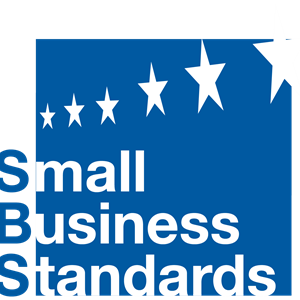NEWS

This tender is being run in the context of a project called Readability Platforms that will, amongst other things, support the European Commission in its conformity with Regulation 1049 regarding citizen access to documents.

The European ecosystem is moving, and it is moving fast. The Ecodesign for Sustainable Products Regulation, known as ESPR, expands the range of products covered while maintaining those already included in the Ecodesign Directive. ESPR introduces new types of ecodesign requirements that are pivotal to ensuring an effective implementation of sustainability and circularity principles.

On 19 November, the Horizon Europe funded project Stan4SWAP marked the project’s final event. The event was opened by MEP Pierfrancesco Maran and brought together industry experts, researchers, policymakers, and city representatives to discuss how swappable batteries for light-category electric vehicles (L-cat EVs) can support Europe’s transition to sustainable urban mobility.

Circularity is no longer optional in Europe: it has become both an economic necessity and an environmental obligation. CEN/TC 473 ‘Circular Economy’ stands at the centre of this shift by shaping the concepts and frameworks that will make the transition truly operational.

Young professionals bring new energy, ideas, and skills to European standardization. As Europe undergoes rapid transformations, their contributions are key to ensuring that standards remain relevant, forward-looking, and impactful.

The holiday season is a time of celebration, generosity, and togetherness. Homes are filled with festive lights, carefully wrapped gifts, and tables laden with seasonal treats. Behind this familiar Christmas magic, however, lies an invisible but essential framework that helps ensure safety, quality, and sustainability: European Standards.

A high-level Vietnamese delegation carried out a week-long study visit to Brussels and Luxembourg from 8 to 12 December. The mission, joined by representatives of the EU Delegation to Vietnam, aimed to deepen their understanding on the legal framework for the railway sector in Europe and the role of CEN and CENELEC standards in particular, in view of the modernization of the Vietnamese railways.

Between 17 and 21 November 2025, ASRO took part in Meeting Standards, a European awareness campaign organized by Small Business Standards (SBS) to highlight the role of standards in supporting the development and long-term success of small and medium-sized enterprises across Europe.

SBS is pleased to report the significant results of the third edition of the Meeting Standards campaign, held from November 17 to 21.

ANEC took part in CEN and CENELEC's event “Setting the Standard: A Strategic Dialogue for an Inclusive Standardization System” on 17 November 2025, where Deputy Director General of ANEC Chiara Giovannini joined a panel of societal and SME representatives. The audience was comprised of CEN and CENELEC Members and representatives of the EU institutions.